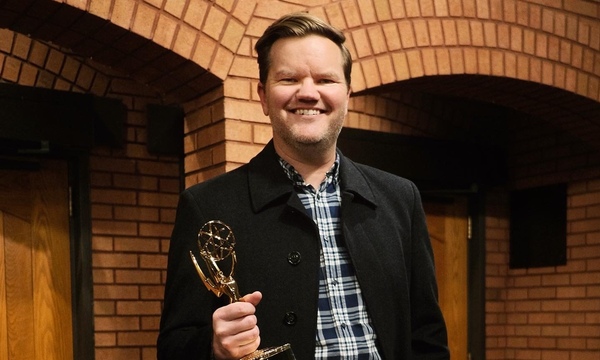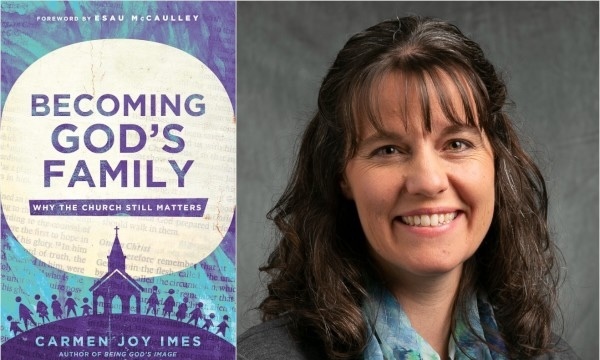Non-governmental organizations (NGOs) benefit from Christian influence in the field of intercultural relations, according to recent research conducted by Dr. Lindsey Huang, associate professor of intercultural studies in Cook School of Intercultural Studies. NGOs are created by people who want to focus on helping people around the world without being under government control or influence. Huang’s research, published in Missiology — “The role of associational life in the development of social capital: Theoretical considerations for Christian NGOs engaged in development initiatives” — explores the importance of trust and Christianity in NGOs.
Regarding work she did some years ago, alongside U.S. and national missionaries in community development projects in Guatemala, Huang said she gained experience in developing communities of faith in diverse cultures.
“I witnessed the many benefits of faith-based community development programs, especially when it came to ministering to the diverse needs of individuals. Nevertheless, this experience also sparked questions, which eventually led to my interest in researching NGOs,” said Huang.
Huang emphasizes the importance of learning about local communities and different cultures when members of NGOs interact with people and places different from themselves.
“As cultural outsiders, NGOs should lean on the expertise and knowledge of local leaders, but also be aware of local community dynamics,” said Huang. “Valuing sensitivity to local community dynamics and an understanding of the role of trust in local communities would benefit organizations working full-time in development work as well as organizations focused primarily on activities such as church-planting and evangelism.”
Here, Huang shares about her research’s significance, how the research relates to her faith and how she anticipates her research to be used by NGOs in the field.
What is the significance of your recent research?
My research examines several of the pitfalls of international NGO work, and while not being immune from some of these same pitfalls, the research also highlights the advantages of Christian NGOs, particularly due to their religious identity. More specifically, my research examines trust through a social science lens in the context of international NGO work. While early development efforts focused primarily on the economic aspect, more recently researchers have turned their attention to the value of social capital for economic development. Trust is one aspect of social capital. Trust can be difficult to foster, especially in societies marked by civil war, political persecution, lack of governmental transparency, and other types of insecurity. Research has shown that religion has many benefits for an individual’s well-being as well as for promoting social solidarity among groups. Religion provides individuals with meaning and hope, as well as gives people a sense of belonging as they join religious communities. Much of these benefits come through social relationships built on trust- the type of relationships that have the potential to be fostered through high quality, gospel-infused development programs. While my research on this topic is currently theoretical, it provides a foundation for empirical studies which I am currently designing.
How do you see your Christian faith intersect with your research?
The gospel provides a way for reconciliation with our Creator, which in turn, equips us for reconciliation with each other. Development projects that are implemented by skilled Christian development workers who take the gospel seriously and reflect authentically reconciled lives, are an important resource for communities’ holistic development. Second, while in the 1970s, scholars predicted that the world was becoming increasingly secular, by the 2000s, many recanted their position. Instead, it was becoming evident that the world was actually becoming more religious. Because of this, Christian NGOs may be better equipped than their secular counterparts to understand, and value, the importance of spirituality in the communities where they serve. This has important implications from making policy and programming decisions, to building trust and rapport with community leaders and members, and to meeting the spiritual needs of people. It is my firm belief that our Christian beliefs can, and should, make meaningful contributions to these conversations in both the academic and practitioner spheres of the development world.
How do you hope this research will be applied today?
Firstly, it is my hope that this research will encourage Christian NGOs to invest in tools and resources that will help them to better understand the social context in which they work. Doing so will help agency decision-makers, as well as workers and volunteers on the field make informed policies for the long-term benefit of the communities where they serve. Secondly, I hope that this research will prompt NGOs to intentionally consider how they contribute to the bridging and bonding forms of social capital within communities. As outsiders, NGOs have the potential to create bridging capital for a community — to connect community members with information and tangible resources that lie outside of that community. At the same time, NGOs can inadvertently affect the bonding capital of communities. NGOs should consider not only the visible, quantifiable results of development projects, but also the unintended consequences generated by their presence. For example, it would be beneficial for organizations to be aware of how the help they provide may upset pre-existing reciprocal relationships within the community. Let me give you a small, but significant example. If a NGO has a ladder or tools available to lend to community members that need to patch their roof or to fix their fence, neighbors may no longer seek to borrow these things from each other. This is important because lending and borrowing creates reciprocal relationships, and reciprocity is positively related to trust. Trust over the lending of goods, as well as the increased communication that accompany these interactions, are traits important for thriving relationships among neighbors. Lastly, it is my hope that secular development researchers and practitioners will also take more seriously the contributions of Christian NGOs. While not all of the critiques leveled against Christian NGOs are unfounded, Christian NGOs have much more to contribute to the field of international development and relief work than they are given credit for, as evidenced by the benefits of religion I described earlier.
Do you anticipate any organizations applying the research now?
I think that any organization that is involved in cross-cultural development or relief work would benefit from gaining a more in-depth understanding of the role of social capital and trust in how communities operate and thrive. Invisible power dynamics are present in all communities. Formal and informal leaders have influence and impose certain dynamics over the rest of the group, whether positive or negative. Moreover, although community leaders are often sought out to lead and implement NGO projects, this puts a high amount of pressure on these leaders to ensure the success of projects. Therefore, community members that already have higher levels of human capital may be chosen as participants in these projects. Choosing “who’s in” and “who’s out” from a project can affect relationships among neighbors. Moreover, NGO donors may think that their financial contributions are helping the “poorest of the poor,” but because of these on-the-ground dynamics, NGO activity may actually widen the socioeconomic gap in communities.
While Christian NGOs are uniquely positioned to foster trust in communities through development initiatives, both Christian and secular NGOs have a lot to learn from each other.
Huang’s full research article can be read here.
Learn more and apply to the Cook School of Intercultural Studies.
Written by Emily Marsh, public relations intern. For more information, contact media.relations@biola.edu.
 Biola University
Biola University

.jpg)

